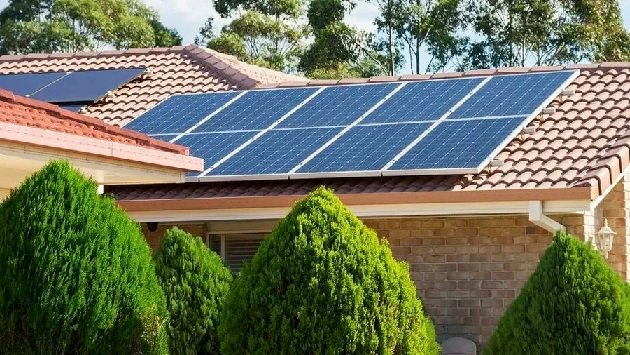In a time when environmental consciousness is on the rise and energy costs continue to escalate, installing solar panels for home has emerged as a green energy solution that benefits the planet and the homeowner’s wallet. Solar panels, scientifically known as photovoltaic (PV) panels, harness the power of the sun to generate green electricity. By converting sunlight into usable power, these panels reduce dependence on fossil fuels, promote sustainability, and offer a renewable alternative. Additionally, they provide homeowners with potential savings, tax incentives, and increased property value, advocating for a brighter, cleaner future. Explore the numerous advantages of installing solar panels, from reducing carbon footprints to saving money on energy bills.
Harnessing Solar Energy
One of the primary benefits of installing these panels is harnessing clean, renewable solar energy. Sunlight is abundant and freely available, making it an excellent power source. Solar panels work by converting the power of sunlight into electricity through the photovoltaic effect. This means that as long as the sun is shining, you can generate electricity for your home, reducing the need for fossil fuels and decreasing greenhouse gas emissions.
Cutting Down The Environmental Impact
Reducing one’s carbon footprint has become a priority for many individuals and families. Solar panels are a sustainable solution that can significantly decrease your environmental impact. By generating electricity from the sun, you reduce the need for traditional electricity sources, which often rely on coal, natural gas, or nuclear sources. This reduction in fossil fuel consumption leads to decreased air pollution and the emission of harmful greenhouse gases, helping combat climate change.
Inducing Cost Savings
Beyond the environmental benefits, solar panels also offer substantial cost savings. While the upfront investment in solar panels and installation can be significant, the long-term financial benefits are substantial. Solar panels can substantially lower or even eliminate your monthly electricity bill. In some cases, homeowners can even sell off excess electricity back to the grid, that helps in reducing costs.
Additionally, government incentives and rebates are often available to encourage the adoption of solar energy. These financial incentives can significantly offset the upfront costs, making solar panel installation a financially sound decision. Over time, the return on investment becomes evident as your energy bills decrease, allowing you to recoup your initial investment and enjoy ongoing savings.
Reducing Energy Independence
Another advantage of installing solar panels for home is the sense of energy independence it provides. By generating your electricity, you become less reliant on traditional utility companies. This can be also beneficial during power outages or emergencies when your solar panels can continue to provide electricity as long as the sun is shining. It also protects you from the volatility of energy prices as you produce your power.
Increasing Home Value
Solar panels can also increase the value of your home. They are considered a valuable asset, and potential homebuyers are often willing to pay more for a home with installed solar panels. Moreover, having solar panels can make your home more attractive to environmentally conscious buyers, expanding your pool of potential purchasers when you decide to sell.
Conclusion
In conclusion, installing solar panels for home is a green energy solution that offers numerous benefits. By harnessing the sun’s power, homeowners can reduce their carbon footprint, lower energy costs, and enjoy greater energy independence. The financial incentives and potential to increase home value make solar panel installation an intelligent investment. As the world keeps shifting towards a more sustainable forms of energy sources, installing solar panels is a step in the right direction for both the environment and your wallet. So, consider using this renewable energy source and make your home a beacon of green energy efficiency.

